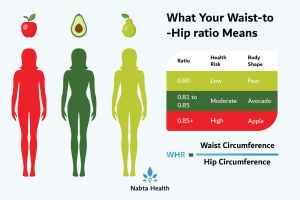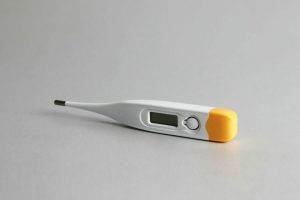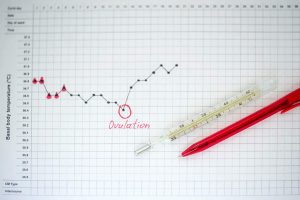Causes of Female Infertility – Autoimmune and Immune-Mediated Disorders

Autoimmune diseases cause the body’s own immune system to generate auto-antibodies that attack and destroy healthy body tissue by mistake. The most common autoimmune diseases include rheumatoid arthritis, thyroid disease and lupus. Many are associated with increased risk of miscarriages and infertility. The reasons for this are not fully understood and differ between diseases, but are thought to be due to the altered immune response causing inflammation of the uterus and placenta. Medications commonly prescribed for autoimmune diseases can also affect reproductive function.
Conditions that are known to impact fertility, such as premature ovarian insufficiency (POI), endometriosis and polycystic ovary syndrome (PCOS) are thought to have an autoimmune component. An underlying autoimmune disease (most commonly of the thyroid and adrenal glands) has been identified in approximately 20% of patients with POI and autoimmune thyroiditis has been reported in 18-40% of PCOS women, although this varies by ethnicity. Furthermore, it is hypothesised that in the 20% or more cases of idiopathic infertility, where no direct cause can be identified, inflammatory processes may play a role.
Thyroid Disease
Autoimmune thyroid disease is a common condition in women of childbearing age affecting 5-15% and can lead to either an overactive (Graves’ disease, hyperthyroidism) or underactive (Hashimoto’s thyroiditis, hypothyroidism) thyroid. Women with thyroid disease often experience menstrual cycle irregularities, so may struggle to conceive.
Lupus
Systemic Lupus Erythematosus (SLE) is a long-term autoimmune disease causing inflammation of the joints, skin and other organs. SLE affects approximately 1 in 2000 women of childbearing age and diagnosis of the condition seems to correlate with a reduction in pregnancy rates. Women with SLE frequently exhibit irregular periods. This might be due to their medication, but there is also evidence of disease-specific effects.
Women with SLE are immunocompromised and therefore at increased risk of infection-induced infertility. There is a psychosocial element, as women who are diagnosed with SLE are at increased risk of stress, depression and reduced libido, all of which can make falling pregnant more difficult.
One of the most established links between SLE and infertility relates to the cytotoxic drugs used to treat the condition, for example, cyclophosphamide. Taken for prolonged periods, these drugs can cause ovarian failure.
Celiac Disease
Around 1% of women in developed countries have the autoimmune condition celiac disease, where the ingestion of gluten leads to damage in the small intestine. They are at increased risk of infertility and recurrent miscarriages. This is likely to be due to nutritional deficiencies in their diet. Thus, women with the condition may want to consult a nutritionist prior to attempting to start a family.
Auto-antibodies
The production of autoantibodies is central to autoimmune disease. One in five infertile couples are diagnosed with unexplained infertility (UI) in which they are unable to conceive with no obvious cause. Autoantibodies have been found to account for some cases of UI, examples include:
- Anti-sperm antibodies (ASAs)
- Antibodies against the thyroid gland, or cellular components such as the nuclear membrane or the cell membrane (phospholipid)
- Antiovarian antibodies.
Anti-sperm antibodies (ASAs) have been detected in the cervical discharge of infertile women, as well as in the seminal fluid of their male partner. ASAs bind to sperm cells, causing them to stick together (agglutinate) resulting in reduced movement and, in many cases, reduced cervical penetration and inhibition of implantation. However, further research is required on determining exactly how ASAs affect fertility, as ASAs have also been found in the cervical secretions of fertile women. The majority of studies assessing the relationship between ASAs and infertility are old and have used outdated technologies which may result in false-positive results due to cross reactivity with other antibodies.
The evidence of the effects of antibodies against thyroid, or cellular components such as the nuclear membrane or phospholipid and antiovarian antibodies on fertility, like ASAs is conflicted and requires further research. Furthermore, how antibodies can cause infertility is not fully understood, and all studies suggesting a link are more about association with autoantibodies rather than a cause.
Anti-oocyte antibodies also exist, but these seem to be a lot less common.Anti-ovarian antibodies have been detected in women with POI. They are associated with anti-follicle-stimulating hormone (FSH) antibodies. FSH is involved in regulating ovarian function.
Causes of Female Infertility – Infection (PID and HPV)
Causes of Female Infertility – Environmental/Lifestyle Factors
Nabta is reshaping women’s healthcare. We support women with their personal health journeys, from everyday wellbeing to the uniquely female experiences of fertility, pregnancy, and menopause.
Get in touch if you have any questions about this article or any aspect of women’s health. We’re here for you.
Sources:
- Brazdova, A, et al. “Immune Aspects of Female Infertility.” International Journal of Fertility & Sterility , vol. 10, no. 1, 2016, pp. 1–10.
- Domniz, N and Meirow, D, “Premature ovarian insufficiency and autoimmune diseases” Best Practice & Research Clinical Obstetrics & Gynaecology, vol 60, Oct 2019, pp 42-55. doi.org/10.1016/j.bpobgyn.2019.07.008.
- Hickman, R A, and C Gordon. “Causes and Management of Infertility in Systemic Lupus Erythematosus .” Rheumatology, vol. 50, no. 9, Sept. 2011, pp. 1551–1558., doi:10.1093/rheumatology/ker105.
- Khizroeva, J et al, “Infertility in women with systemic autoimmune diseases” Best Practice & Research Clinical Endocrinology & Metabolism, vol 33, Dec 2019, doi.org/10.1016/j.beem.2019.101369.
- Kim, N Y et al. “Thyroid autoimmunity and its association with cellular and humoral immunity in women with reproductive failures.” American Journal of reproductive immunology, vol. 65, no. 1, Jan. 2011, pp. 78-87. doi: 10.1111/j.1600-0897.2010.00911.x.
- Lebovic and Naz, “Premature ovarian failure: Think ‘autoimmune disorder’”, Sexuality, Reproduction & Menopause, vol. 2, no. 4, Dec 2004, pp.230-233. https://doi.org/10.1016/j.sram.2004.11.010.
- McCulloch, F. “Natural Treatments for Autoimmune Infertility Concerns.” American College for Advancement in Medicine, 29 Jan. 2014, www.acam.org/blogpost/1092863/179527/Natural-Treatments-for-Autoimmune-Infertility-Concerns.
- Romitti, M et al. “Association between PCOS and autoimmune thyroid disease: a systematic review and meta-analysis.” Endocrine connections, vol 7, no. 11, Oct 2018, pp 1158-1167. doi: 10.1530/EC-18-0309.
- Shigesi, N et al, “The association between endometriosis and autoimmune diseases: a systematic review and meta-analysis.” Human Reproduction Update, vol. 25, no. 4, Jul 2019, pp 486-503. doi: 10.1093/humupd/dmz014.
- “What Are Some Possible Causes of Female Infertility? .” National Institutes of Health, www.nichd.nih.gov/health/topics/infertility/conditioninfo/causes/causes-female.










